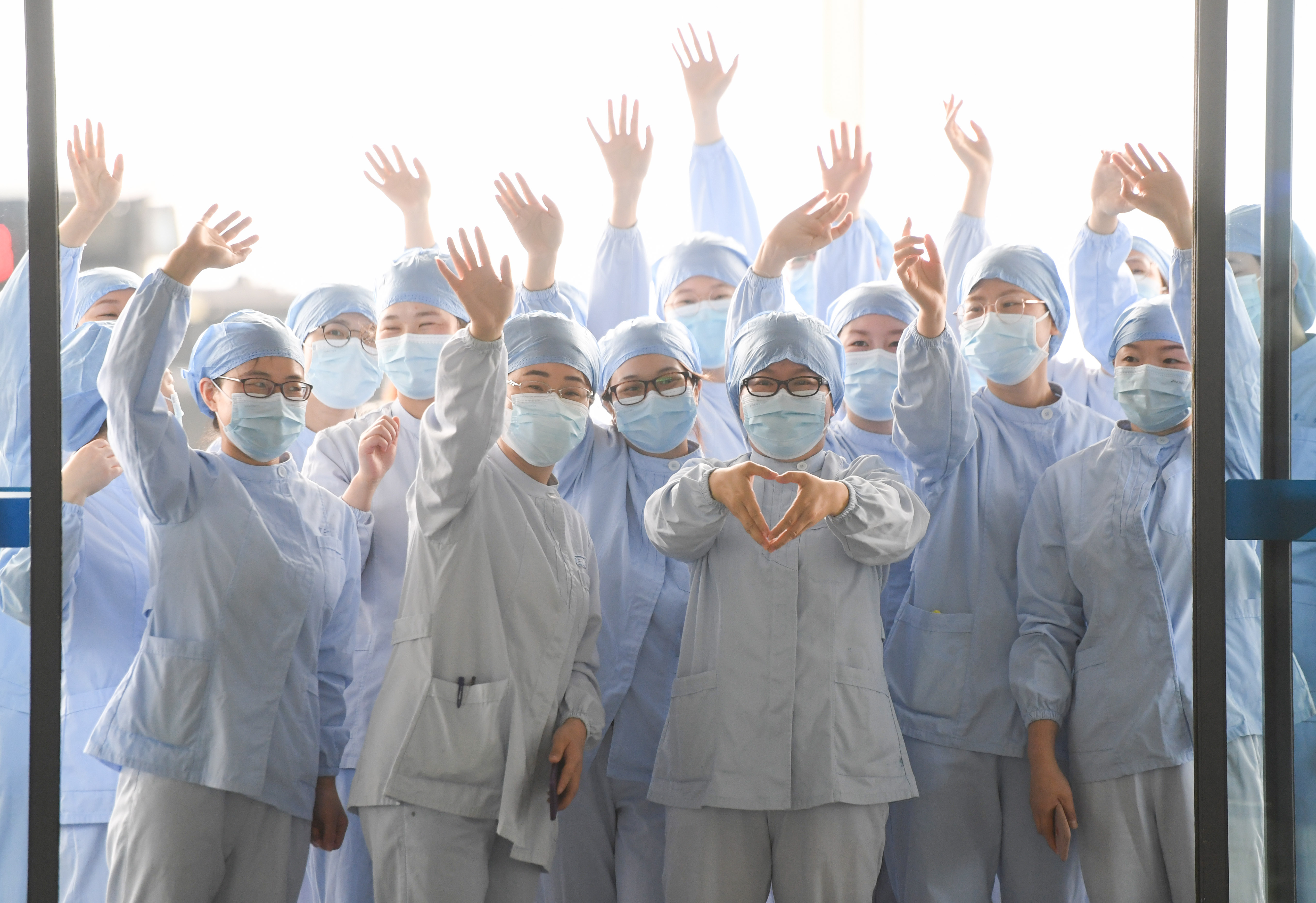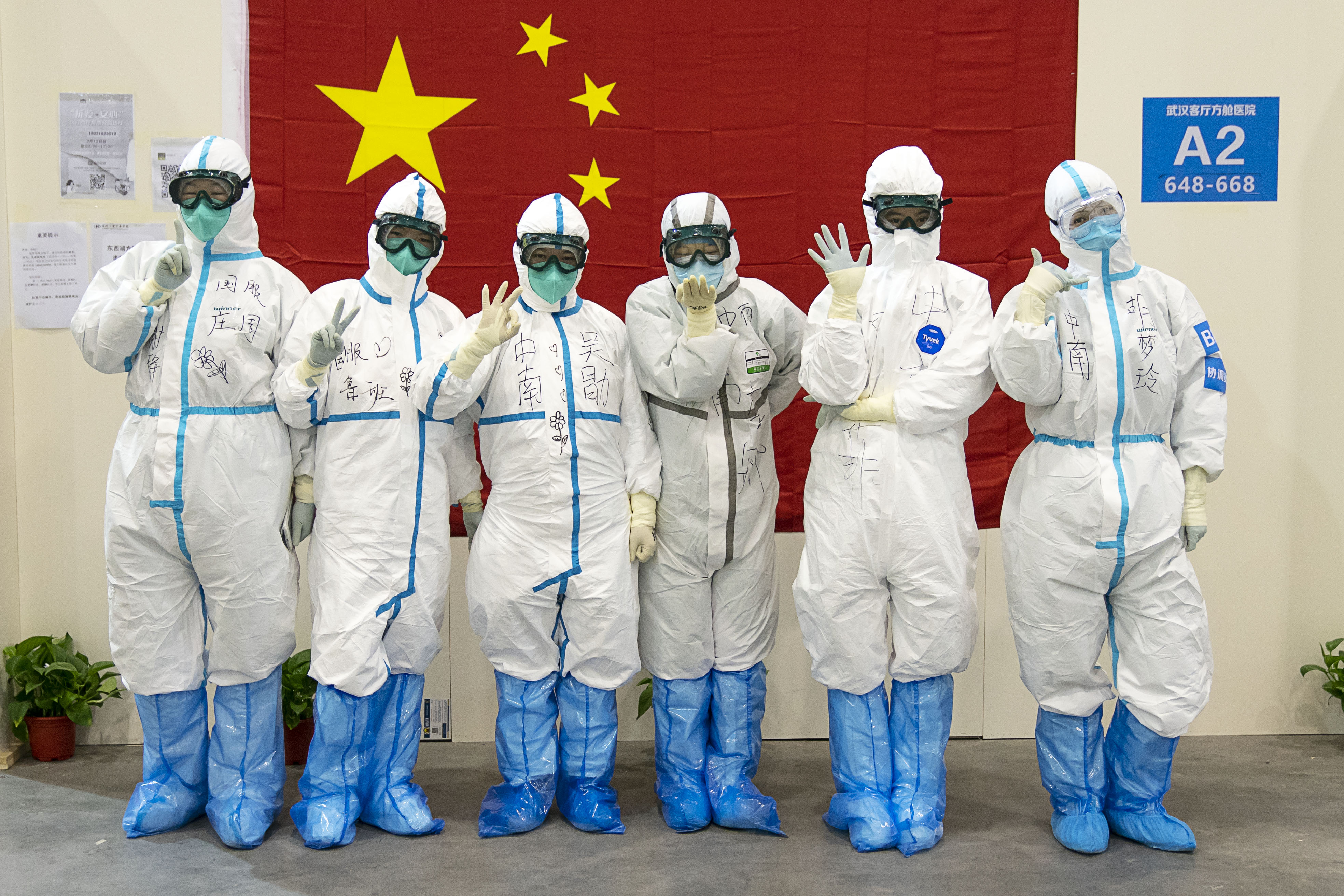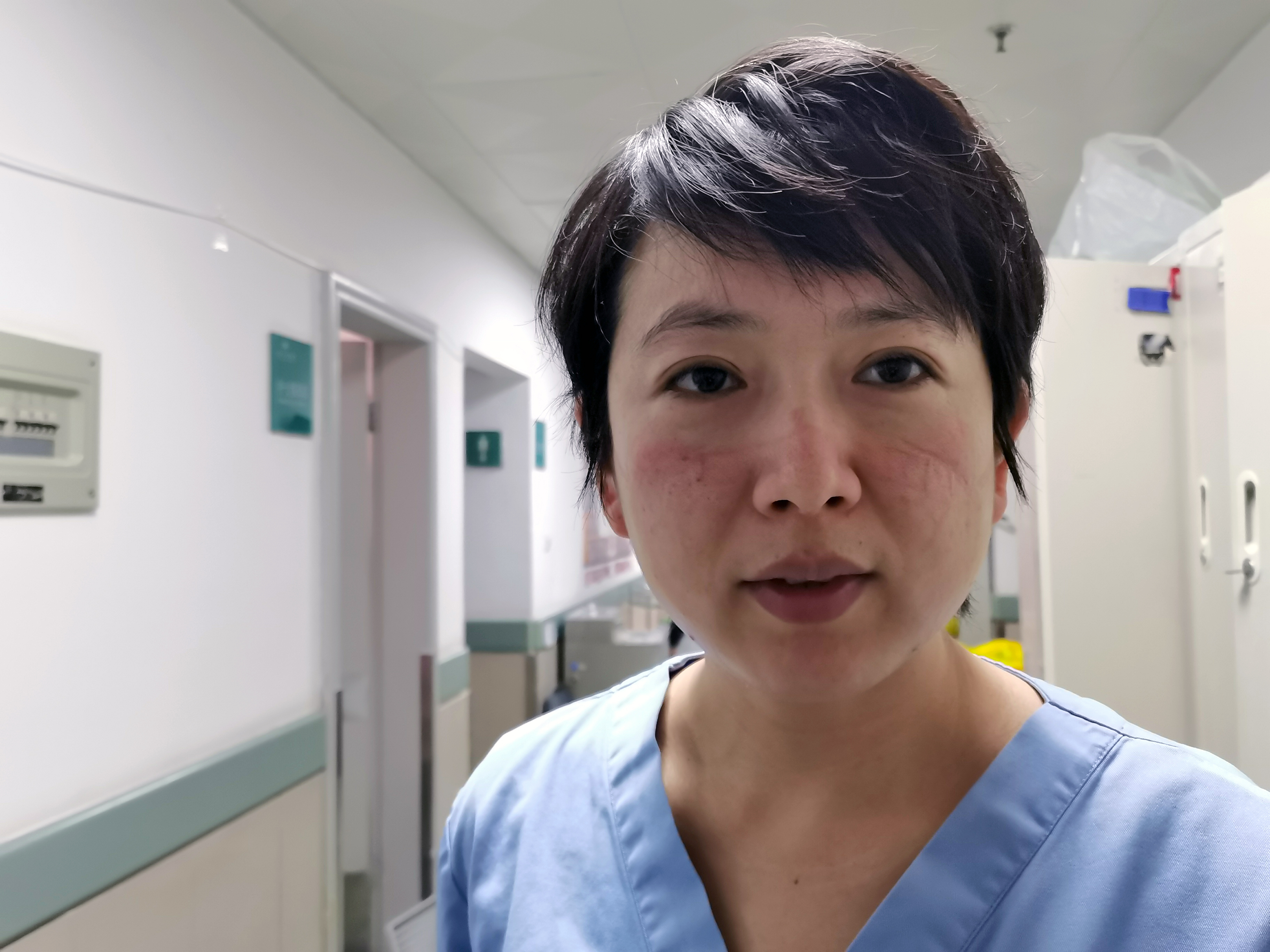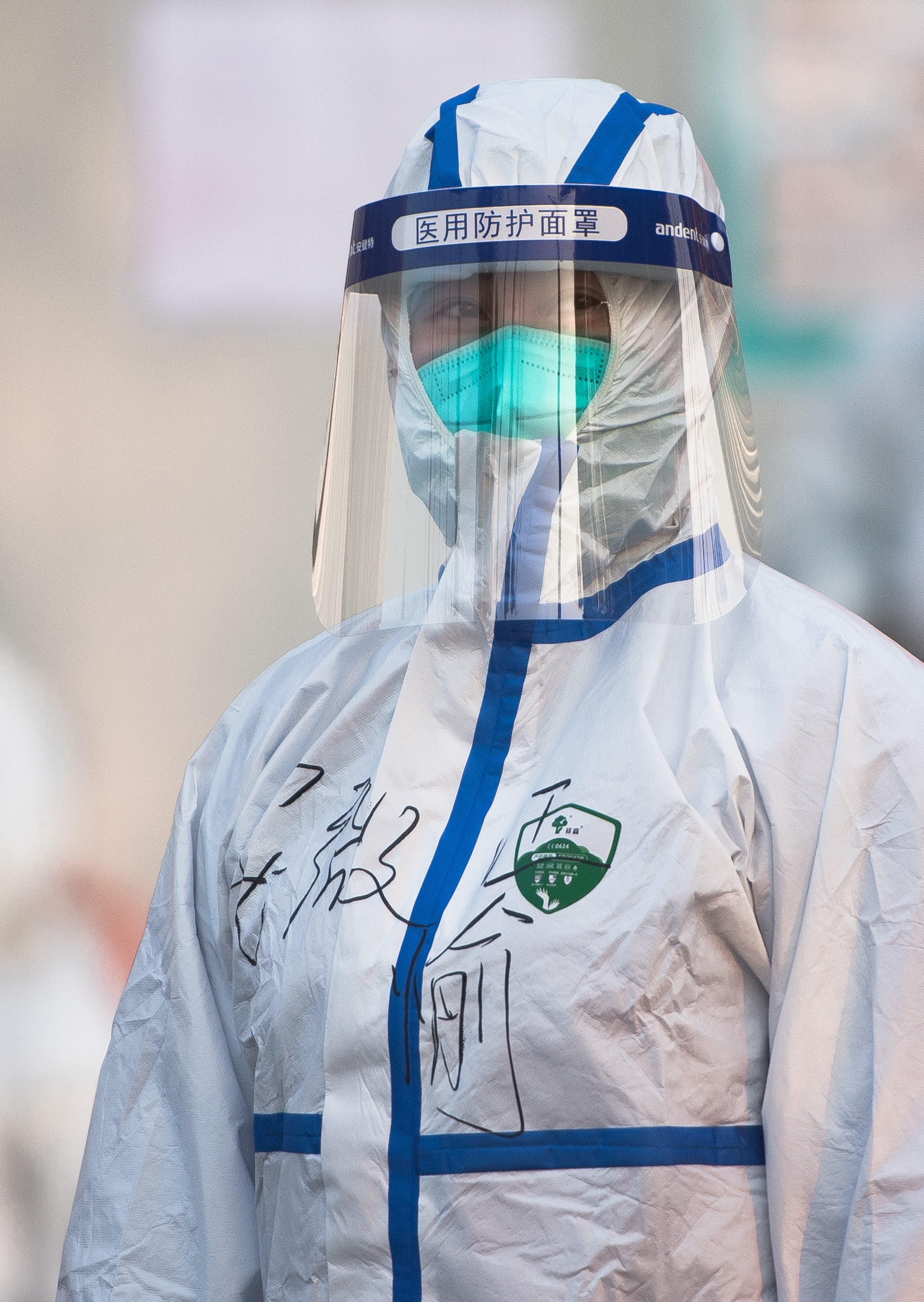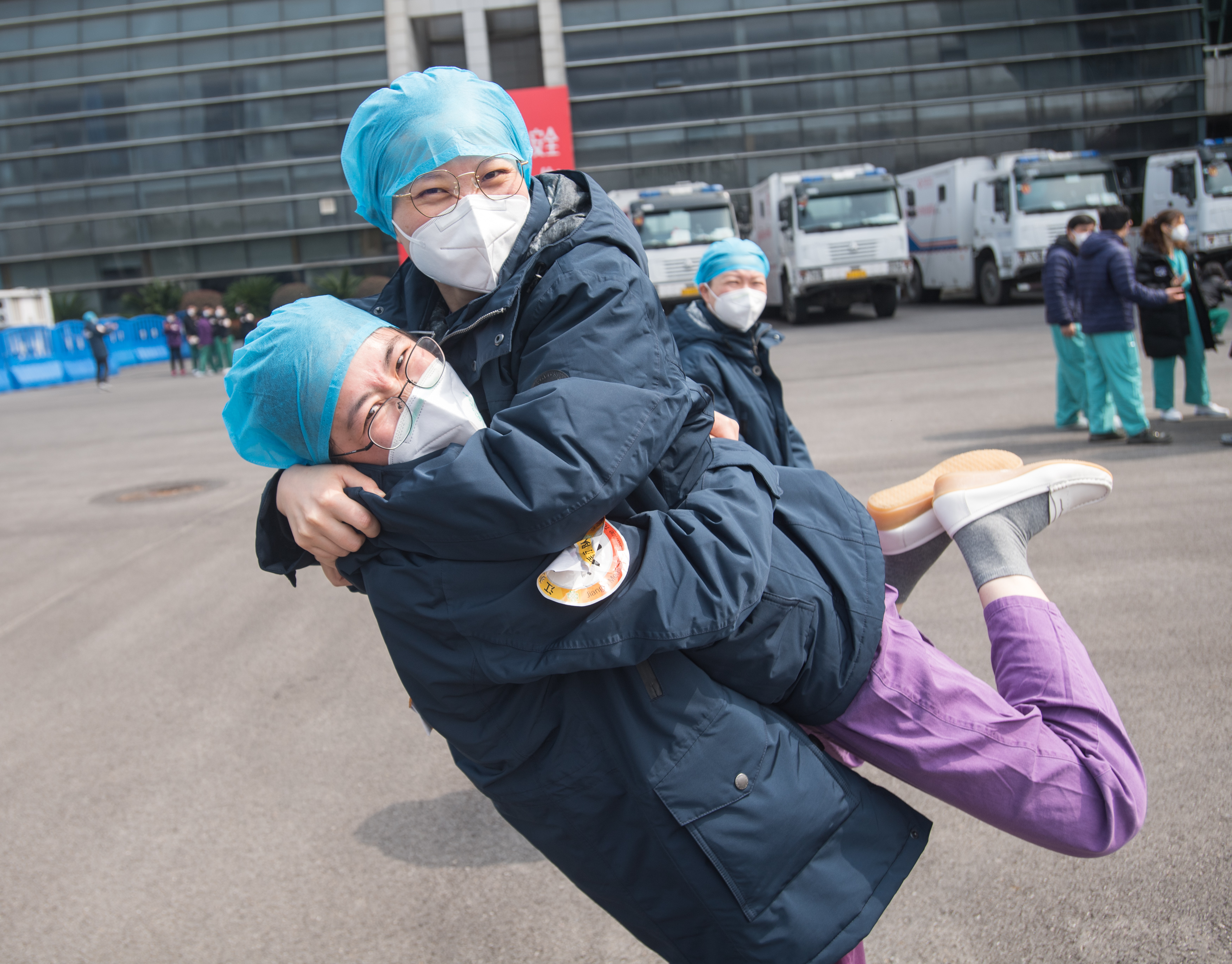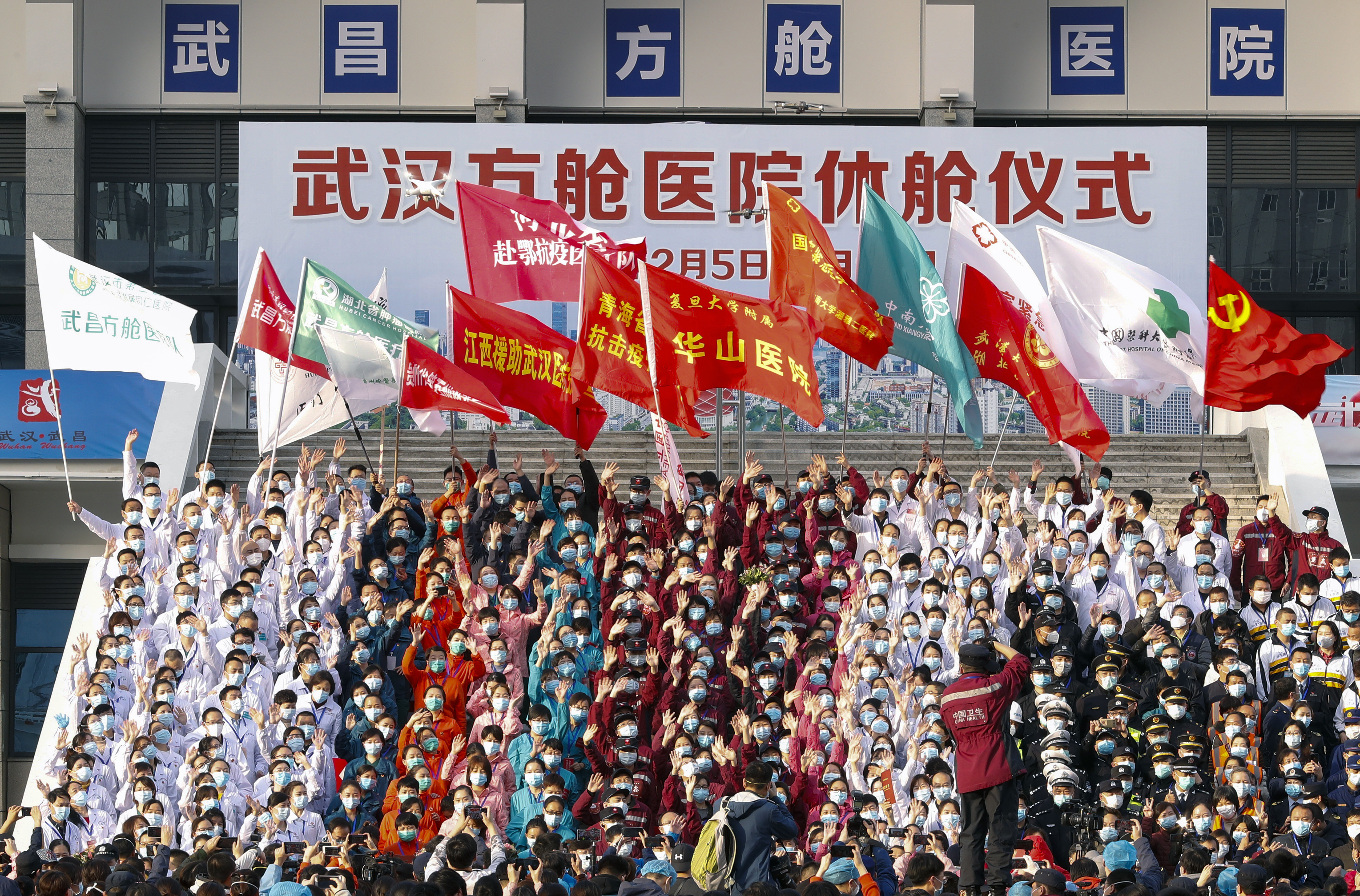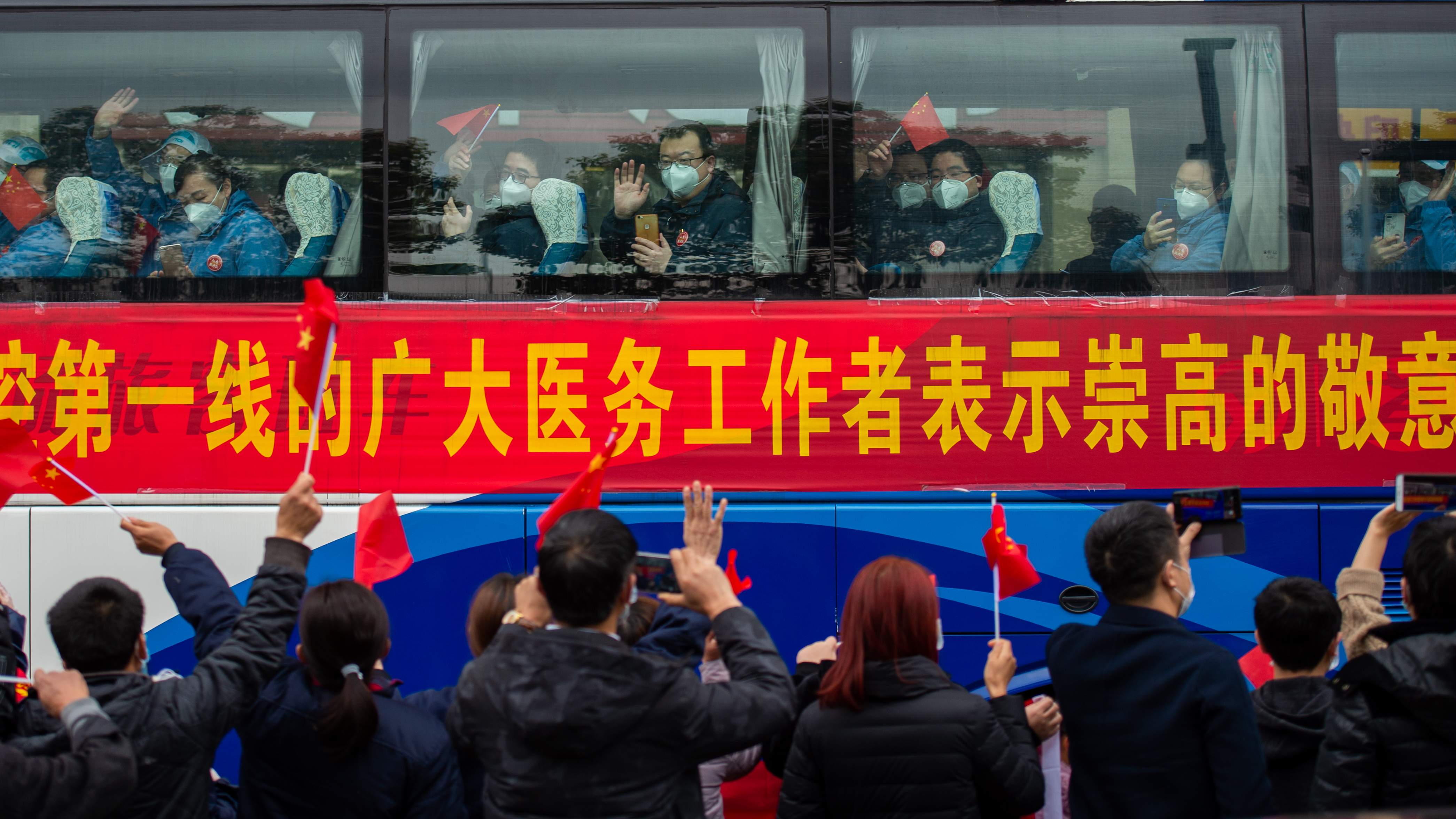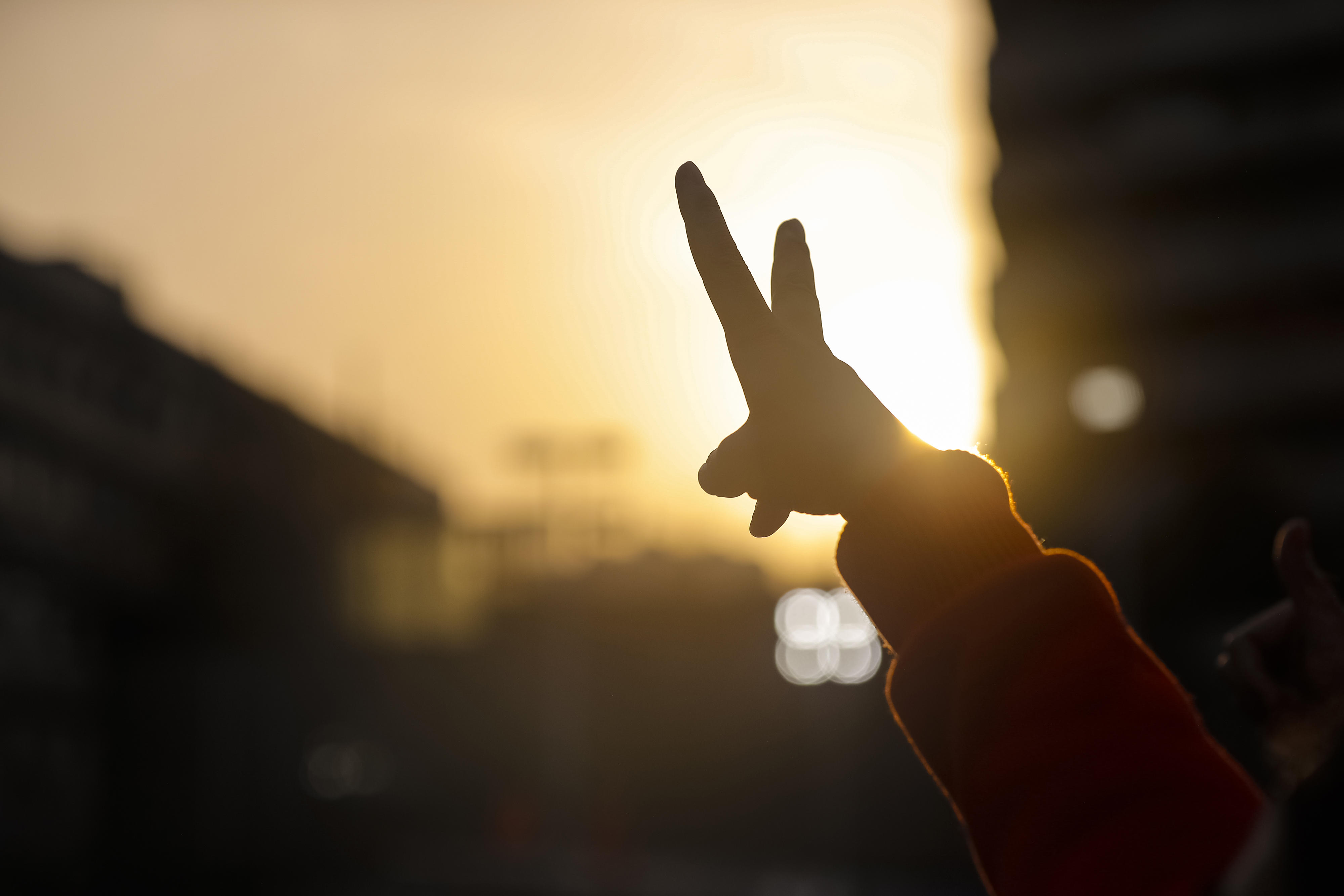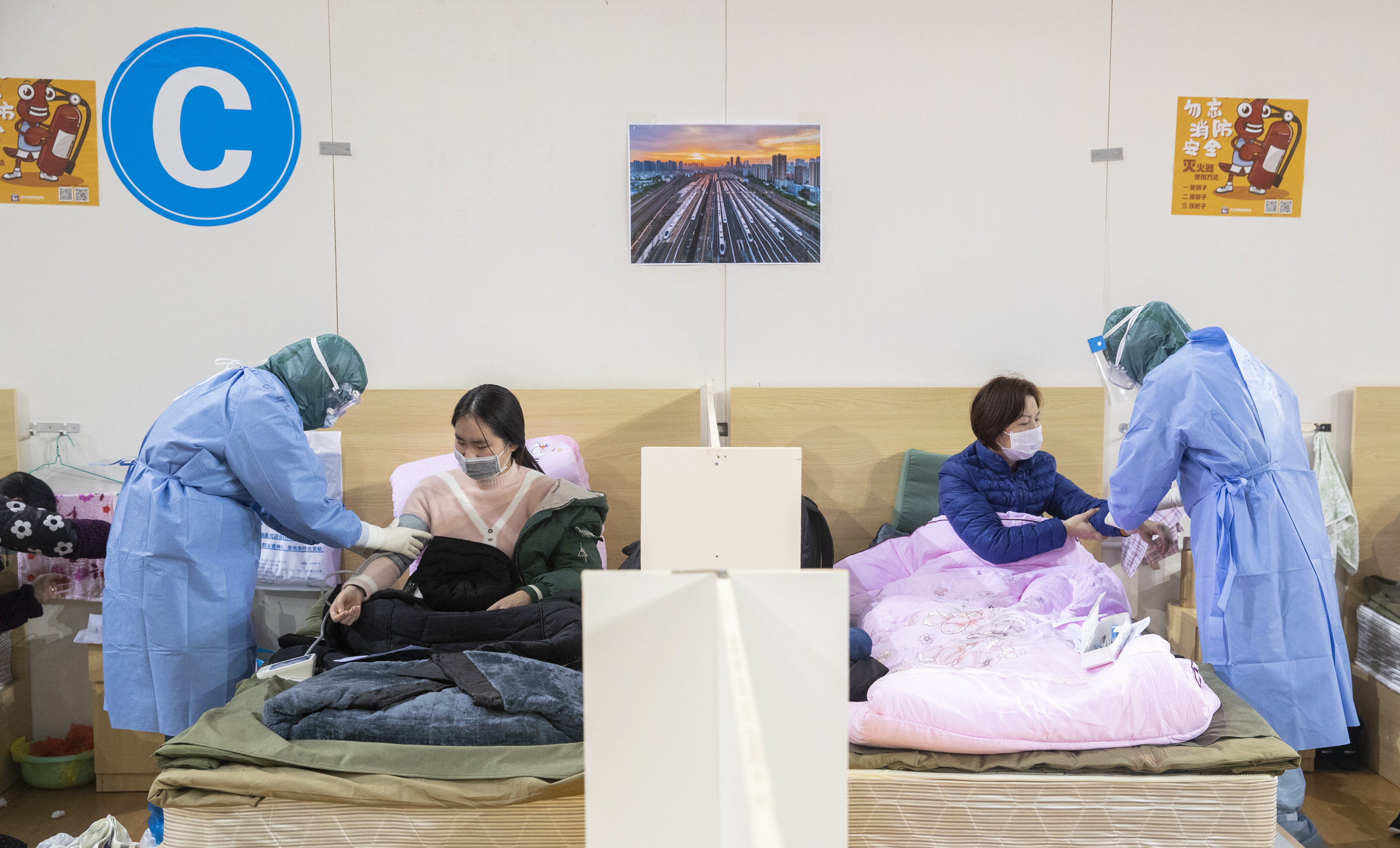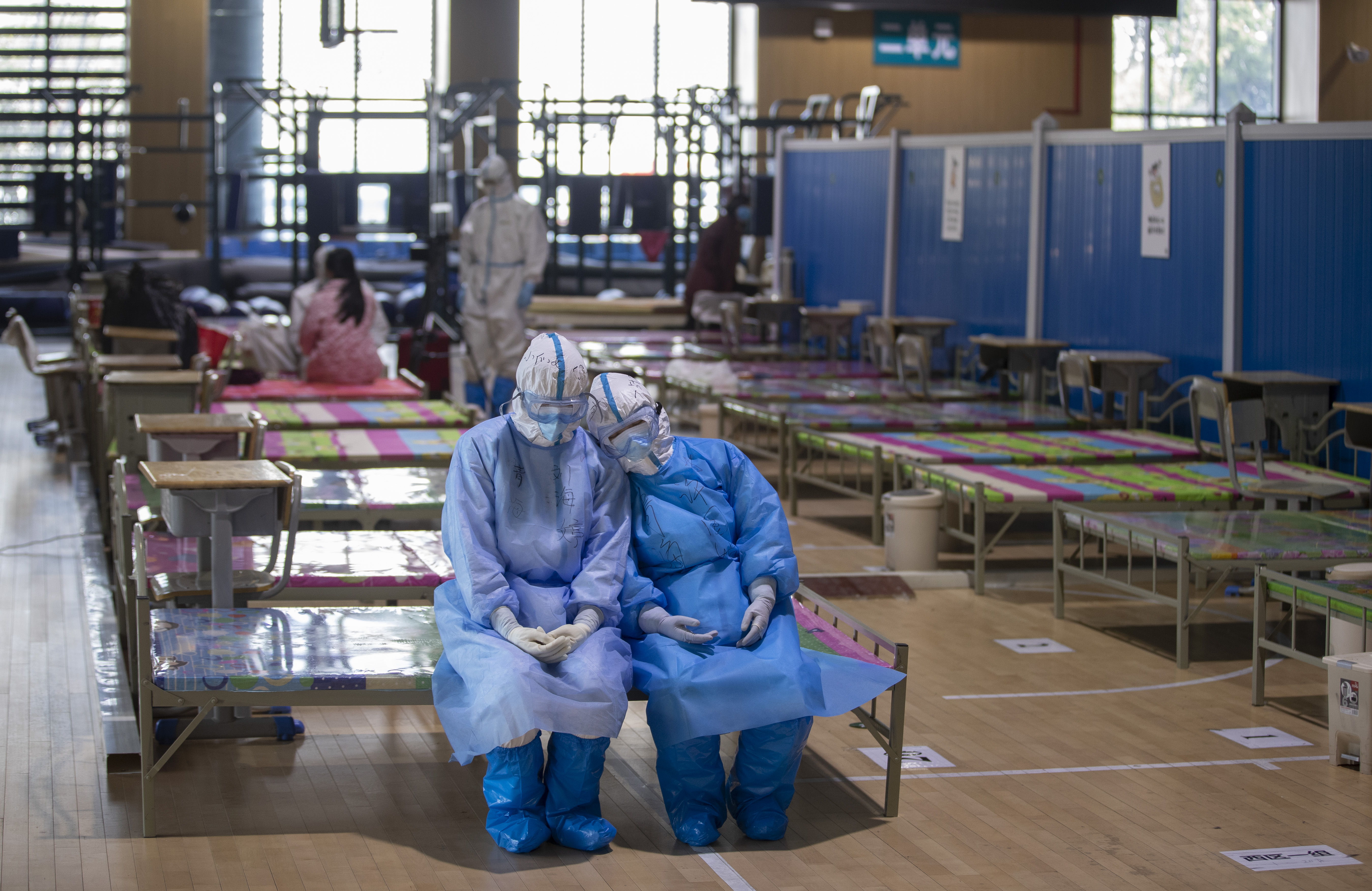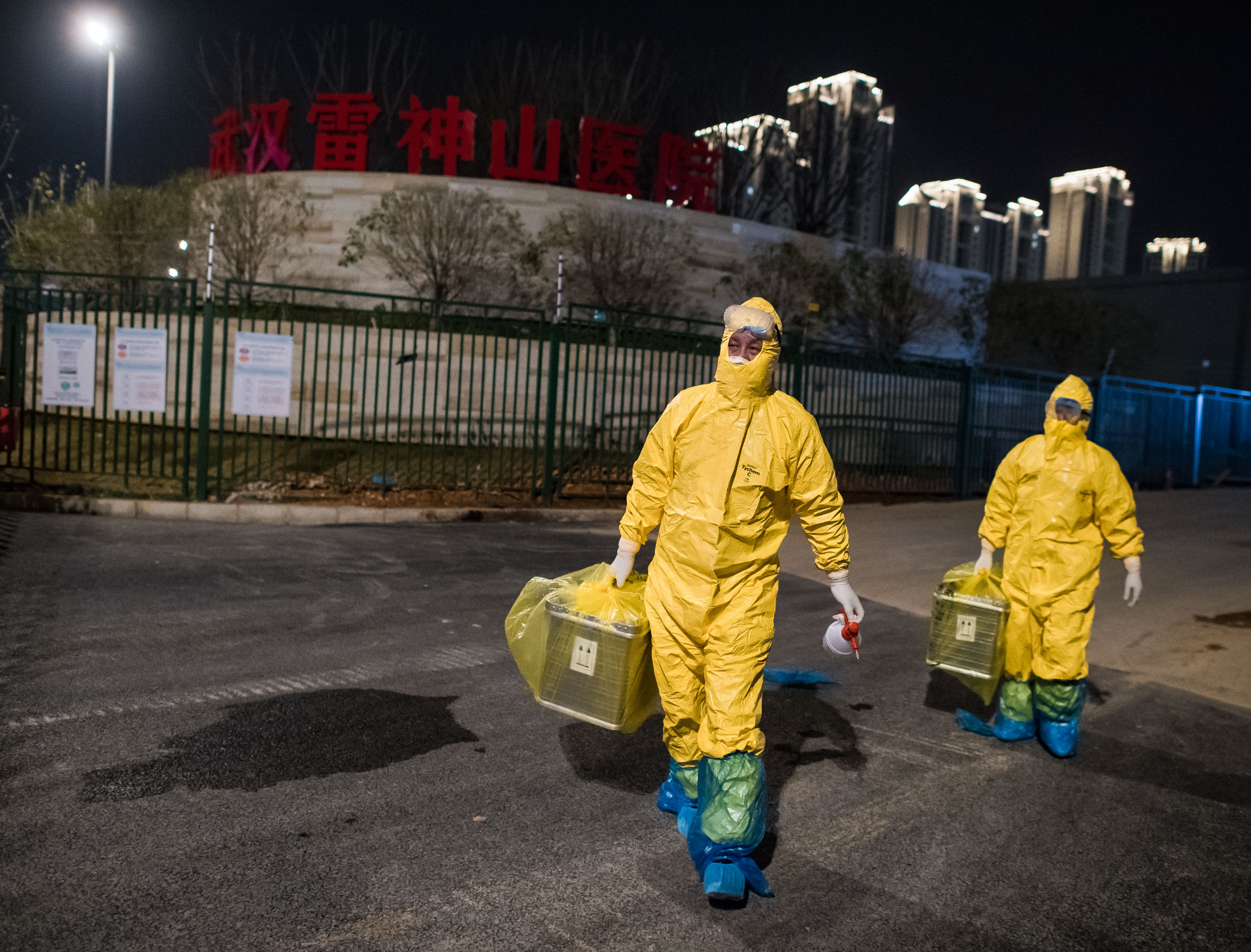In Death as in Life, We Stand Together2020.06.22
Introduction
Since the People’s Republic of China (PRC) was founded in 1949, the country has overcome countless challenges and crises. The COVID-19 epidemic struck Wuhan at the end of January 2020. The virus posed great threat to public health, spreading fast and impacting the whole world. Facing this crisis, the Chinese government and people have shown unprecedented unity, calmness and tenacity.
The effective measures taken at every stage of the anti-epidemic campaign show how China is closely united as one and try its best to protect its people. After this epidemic, the nation will usher in a new era of rejuvenation with more confidence and vitality. We would like to share with you what our healthcare workers and governments have done, how the people in Hubei do their part to support, and how grateful we are to those heroes in white.
Part I: The hardest mission
The deadly coronavirus has caught Wuhan by surprise and put millions of residents into danger. A total of 346 teams formed by 42,600 medical workers including those from the military promptly responded to the orders of the government. They faced challenges head on and built a great wall fending off the virus.
You may think the everyday job for the medical teams is merely taking care of the patients, but that is not the case. The first team of 138 medics from Tianjin had encountered so many difficulties in their work. When they arrived at the Second Hospital of Wuhan Iron and Steel Corporation (WISCO), the four-story building did not even have central oxygen supply system or telephone system. At that time, there were over 50 COVID-19 patients in desperate need of treatments. It was in such a poorly-equipped establishment that dozens of patients were cured. Some female medical workers cut their long hair for the convenience of work and safety.
On January 24, the very first day of the Lunar New Year, the Guangdong medical team took over the treatment area in Wuhan Hankou Hospital which was transformed from surgical wards. Here, most patients were in critical condition. What’s worse, because the ICU and other areas were not appropriately divided or managed, they were all contaminated. The medical team had to clean and disinfect the whole area according to the government’s requirements and set up three areas: clean area, contaminated area, semi-contaminated area, and two passages for the medics and patients respectively. They properly disposed of medical wastes including injection needles, and separated the buffer area with wooden plank and tape. In nine days, they finished the work and started to gain more confidence.
In the Fangcang makeshift hospital at Hanyang Sports School, the medical staff were so tired, sweaty and thirsty every day. “When I see a patient drinking water, I can only lick my dry lips. I wear diapers to cut the times I need to go to restrooms but my diapers are soaked with sweat,” said Yang Liping, the group leader.
The Jiangsu medical team decided to work in small groups for higher efficiency and effectiveness. The critical care team, led by Qiu Haibo and Pan Chun, had been working around the clock on the front line for the longest time. The frontline doctor team, led by Jia Ling and Hu Xing, manifested the benevolence of doctors and saved numerous lives. The nursery team, led by Tao Lianshan and Li Xiaoqing, protected COVID-19 patients with their love and care in this freezing winter. The team supporting Huangshi, led by Lu Xiang and Huang Yangzi, displayed superb medical skills in their work. The Traditional Chinese Medicine team, led by Zhu Jia and Shi Suofeng, successfully treated patients with herbal remedies. The infection and disease control team, led by Yang Le and Chen Yong, worked nearest to the virus. The young professional team, represented by Li Zongyu and Yu Yan, demonstrated that the younger generations were not afraid of any challenges, and willing to devote their energy to the protection of lives. The healthcare group, represented by Wang Jun and Yin Dian, sacrificed their time with their own families, setting up a good example of the courage and selflessness of medical workers.
On March 21, a special medical team of 12 members was formed with top experts in pulmonary, critical care and cardiopulmonary diseases. These experts were from 10 different top hospitals of Beijing, Jiangsu, Zhejiang, Anhui, Inner Mongolia and Hubei. They came together to save a COVID-19 patient in critical condition. The odds to win the patient back was perhaps at 5%, but they, with the help of VVA ECMO, put forth 100% of their efforts. ICU had finally become “I see you.”
Lou Ning, leader of the medical team from Sun Yat-sen University Cancer Center, said that the whole team had been working on the frontline for more than two months in Wuhan. Most patients in the ICU were in extremely critical condition and their conditions were complex and unstable, which might pose great danger to the medical team at any time. With their nerves always on edge, the whole team treated 96 patients in critical condition in 60 days, and no one on the medical team was infected.
Wu Jianchao of the Hebei medical team recalled that, for more than 50 days and nights in Hubei, he could feel the sweat flowing in his protective gown every day. Yu Xia of the Anhui medical team was unable to unlock her phone with her fingerprints sometimes because her hands were soaked in sweat. The wards were just like battlefields, and every life counted. When the medical staff put on protective gowns, they had to honor their responsibility. Their clothing was soaked with sweat and their faces were imprinted with the masks. They eat, drink, or even go to the restroom only after a whole shift of 7 to 8 hours. However, they neither complained, nor gave up.
China’s National Health Commission put forward the policy that encouraged 16 provinces to pair up with and assist 16 cities apart from Wuhan in Hubei. They sent not only medical staff but also food and protective equipment. Guizhou mobilized the whole province’s resources to help Ezhou. Guangxi, a relatively developing province in southwest China, sent Shiyan 1.83 million medical supplies, 201 tons of disinfection supplies, 1,082 tons of fruits and vegetables, and 15 negative-pressure ambulances. Before returning, the Chongqing medical team helped Xiaogan build PCR Testing Laboratory. The Guangdong medical team built an online platform for Jingzhou. The Jiangxi medical team set up a remote consultation platform for Suizhou and provided 100 ambulances, leaving a medical team that will always stay.
All those medical teams supported Hubei in building the Noah’s Ark that saved numerous lives for the 16 brother cities.
“I’ve been containing myself during this overwhelming situation, but I could not help crying when I opened the front gate and saw the joyful faces of the patients waiting to be discharged,” Lu Feng, the leader of Tianjin medical team told us, “I was already very happy on February 5 as our patients were gradually recovering. When I knew we were going to discharge eight patients, I told every team member this great news and encouraged them to share these patients’ happiness with those who are still fighting against the virus. When I saw their faces, I knew that all our efforts were worth it.”
On March 6, the Yunnan medical team discharged the first group of 21 patients. The medical staff and patients sang “Tomorrow Will Be Better” and “Ode to the Motherland” together. Everyone was proud of their country as China mobilized the whole nation to support Hubei. 498 members from the Yunnan medical team stationed in Xianning, Hubei, for almost two months. They cured 821 patients and saved nearly 1,000 families. Their achievement showcased the kindness and the sense of responsibility of doctors. Xianning Municipal People’s Government awarded them the title of Xianning Honorary Citizens.
All 16 Fangcang makeshift hospitals in Wuhan were finally closed on March 10; 16 cities in Hubei province, excluding Wuhan, reported no new confirmed cases for consecutive days; and more and more patients are discharged from the hospital every day. The epidemic control marked a progressive achievement. The medical teams could finally go back home and have a reunion with their families.
When more than 64,000 patients in the whole province were discharged, the number of critically ill patients in Wuhan dropped from more than 9,000 at the peak to dozens today, and the recovery rate boosted up to 89% from 14%. When the newly-built Leishenshan Hospital closed down, 67 hospitals in Wuhan resumed their normal operation. When the city is back on the track, lights were on and soldiers in white will be remembered in the chapter of 2020.
Part II: Stand united and fight together
The epidemic could physically separate one from the other but could not part our hearts.
In the 16 makeshift hospitals, 85 medical teams and more than 8,000 medical workers were protecting 12,000 patients. They were taking care of their mental and physical health. The medical staff led the patients to do Chinese traditional health exercises—Baduanjin and Taichi. Meanwhile, patients volunteered to help the medical staff distribute meal boxes, maintain orders in the hospitals and translate dialects.
Here, there was mutual trust between doctors and patients, who were fighting against the epidemic hand in hand; Here, patients with mild symptoms helped to clean up the building; here, medical staff held birthday parties for patients; Here, wards turned over faster in order to treat more patients and this had become a turning point in the epidemic response in Wuhan.
In order to smoothly communicate with the locals, the medical team from Qilu Hospital of Shandong University compiled a Wuhan Dialect Manual. Liu Kai from the Shanghai medical team accompanied the 87-year-old patient to appreciate the sunset. Li Juanjuan of the Jiangsu medical team got herself a nickname of “little cutie” as her conversation with a 76-year-old patient was just like a grandpa-granddaughter talk. Behind the touching scenes was the deep concern from these medical teams combined with the determination to win the fight against the epidemic.
Chen Xiaomei, a nurse from Hainan, got herself a new Wuhan “mother.” In Jianghan Makeshift Hospital, she met Mrs. Huang, an optimistic and brave patient. When Chen received the order to withdraw from Wuhan, she told her mother Huang. Chen said: “I will always miss Wuhan because my new mother Huang lives here.”
Wang Yajuan, a young professional from the Henan medical team, got herself a “sister” and “nephew” in Wuhan. In Qingshan Makeshift Hospital, Wang fought side by side with Su Jie, a mild and passionate nurse from Wuhan. Knowing that the Henan team would depart from Wuhan, Su’s 6-year-old son painted a picture for Wang. “This is the best gift I have received this year!” she said.
Cai Linglong, a doctor from Guizhou Province, got a group of “brothers.” In Ezhou, if the medical team needed something, be it needles and threads, or coordination and transportation, they only needed to post the request in the WeChat group, and volunteers would come and help them in no time. Cai said: “I will never forget that with every quick response I felt someone was always there for me. Our team got so spoiled by these brothers.”
Bi Cicheng’s wife, Tang Weijing, is a nurse in the Cardiovascular Department of the Third Affiliated Hospital of Guangzhou Medical University. Tang, also a medical staff, fully supported her husband’s decision to join the medical team to aid Hubei. “I haven’t seen him for more than two months,” Tang said, “but I thank my husband for showing me his bravery. I’m convinced that you are the one to entrust my whole life with. I want to spend every day with you in the future.”
“The patients are healthy and full of hope again, and we were so touched by their bravery.” An Jianmin, the leader of the second batch of Tianjin medical team, choked with sobs.
“When Wuhan was suffering from shortage of medical supplies, the whole city still did its best to meet our needs.” Shi Huiqiong, a Yunnan medical team member, broke into tears.
“The beauty of Wuhan lies not only in the cherry blossoms, but also in the bravery of people here.” Chen Chuanliang, vice president of Henan People’s Hospital, was deeply moved by the city’s resilience.
“The strength and optimism of the Wuhan residents I’ve seen will be the most precious memory in my life.” Chen Yu, a member of the Jiangsu medical team, said emotionally.
“We went through life and death together, and I will never forget it.”
Wang Yue, a doctor from Chongqing, wrote a “love letter” to Wuhan: “Wuhan is going to be my second hometown. I am just a drop in the bucket, but Wuhan—you are such a wonderful city. Wuhan, my river town, I love you and I am asking something from you. I want you to be safe and happy for every day and night from now on and forever.”
Hubei people will never forget that it was the responsibility of protecting people’s health and lives that made medical staff meet the dangerous challenge head on and risked their own lives; it was love that made medical staff well up with tears; it was the resolution to defeat the epidemic that made the staff hold on to their faith and never gave up during this trying time.
In Xiangyang, a resident, who passed by the shuttle bus of Liaoning medical team, stopped and bowed to the members on the bus.
In Jingmen, a patient was revived after 16 days’ of ECMO treatment. He played Go Home with his harmonica to send off the life-savers from Zhejiang and Inner Mongolia.
In Huanggang, a little girl held her thank you painting and sat in the back of scooter, escorting the Hunan medical team for two kilometers.
In Wuhan, four patients were discharged from Huoshenshan Hospital after full recovery. When boarding the ambulance on the way home, they made a sharp turn and gave big hugs in the air to the military medical staff.
Those instinctive behaviors expressed their true love. It’s just a flashing moment in a hurry, but it’s stronger than words.
Thank you for fighting for Hubei!
Thank you for fighting along with us!
The heroes who came to aid Wuhan were leaving, but what they had accomplished would be remembered forever.
Part III: Time to say goodbye
The great expeditions are looked up to as stars; the great returns deserve the highest courtesy and deepest respect.
On the morning of March 17, when the first ray of dawn broke through Wuhan, a mobile medical team slowly started to make its move. After 43 days of fighting against COVID-19, 43 members of the medical team from Shaanxi completed the mission of rescuing patients in the makeshift hospitals at Wuhan Livingroom and Qingshan. The team was among the first to leave Wuhan. On the same day, the first batch of 49 medical teams, consisting of 3,787 medical workers, started their return journeys from Hubei via airline, railway, and highway.
On their way home, 3,000 police escorted the medical staff for the whole journey. At Wuhan Tianhe International Airport, the boarding gate was named “Arc de Triomphe”, the flight was named as “Victory”, and the cabin was named as “Meritorious Service Class.”
As the lockdown was still in place at that time, Wuhan residents could not come to the street to say goodbye to these medical staff. Only the polices could escort them on their departure, but the residents still found their own ways to send them off.
When the Tianjin medical team was passing by the neighborhoods, the residents came over to their balconies or windows, waving goodbye to them and shouted: “Thank you, angels in white!” “We will always remember you!”
When the Yunnan medical team was leaving, the residents stood within their communities’ front gates and waved the national flags, wiping tears, bowing and saluting to these angels in white.
When the Jiangsu medical team was leaving, volunteers sent protective gowns decorated with cherry blossom, the iconic flower of Wuhan. It was a short trip with a big mission, but we will make it up for the cherry blossoms and embrace each other next year!
When the night fell, Wuhan lit up the whole city to thank the heroes. Slogans could be found everywhere on street: “White uniforms with amours, heroes in harm’s way,” “Walking hand in hand in wind and rain, thank you for saving us.” These lines illuminated the night sky and certainly aroused tears.
The medical teams returned their thanks in tears. In Hubei, tears, fears, tiredness, bitterness, and sweetness were mixed all together, far beyond words.
It was a lovely day in April, the last medical team of 186 members from Peking Union Medical College Hospital withdrew from Wuhan after 80 days’ battle against COVID-19. Till that day, 42,600 medical staff from all over China had all withdrawn safely and no one was infected. It was not usual to see this kind of nice weather in Wuhan, especially after the petals of cherry blossom became drenched in rain showers during the Tomb Sweeping Festival. It seemed like the sun was shining on people who had not been exposed to the sun for a long time.
We used to look forward to this day as a sign of victory, but it was not easy to say goodbye when the time came. In 1958, Wei Wei, a famous writer, wrote in his prose “The Deep Feeling of Farewell”: “We can face a great war, can face all kinds of hardships when rebuilding homes, but we cannot face such a hard farewell.” At this moment, no matter who is leaving or who is sending off, both are suffering from this parting.
62 years after those words were written, in 2020, Hubei finally began to revive after 76 days of lockdown. The sun thawed the ice and melted the snow and let the flowers bloom. Our angels in white and our heroic Wuhan people, were in floods of tears, reluctantly to say goodbye.
To our angels, goodbye! To our beloved ones, please take care!
Ending
When disaster strikes, help comes from all sides.
From the emergency deployment of tons of medical materials to the gathering of experts from pulmonary departments, infectious disease departments, critical medicine, and other disciplines discussing treatment plans, to the reduction of new infections in Wuhan to less than 10, and finally to no confirmed cases and suspected cases, all reflect the great strength of the Chinese nation, as well as the faith of “life first, people first.” As Bruce Aylward, the head of the WHO joint expert team, said: “This is real unity.”
Time was, is and will be a faithful recorder of this anti-epidemic campaign in Wuhan, China in the winter of 2020.
Translation: Shi Wenfei, Special Focus
By Cui Yuyu & He Sai

